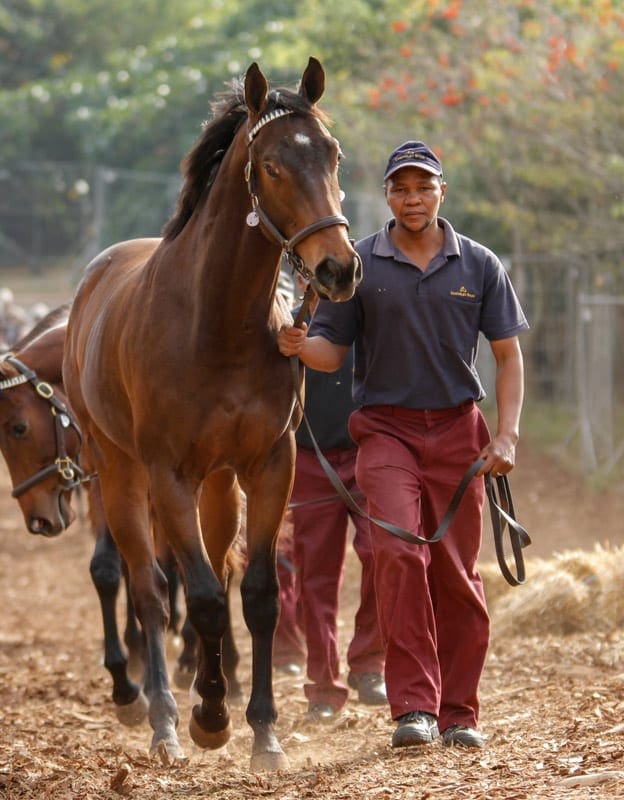Grooms’ skills training and transformation.
The Thoroughbred breeding industry employs nearly 2000 farmworkers across South Africa, many situated in farming communities and rural areas.
The TBA, together with the Cape Breeders Club and the KZN Breeders Club is instrumental in driving the ongoing education and training of stud staff who are integral to the efficient functioning of a stud farm.This is with a view to continually develop our staff and their capabilities, allowing them the opportunity to expand their knowledge and skills. Initial formalised training was started in the Western Cape and Kate Hurst of the Department of Equine Studies at Elsenburg developed the technical skills programme for grooms, accredited by the Equine Qualifications Authority of South Africa (EQASA), as a fully recognised qualification.
The requirement for skills training starts from a basic level, (some staff are only semi-literate), including important life and practical skills such as personal finance, handling credit, wills and retirement, legal rights, communication, etiquette and workplace conflict, through to business skills and computer literacy for more advanced students.
The programme involves increasing levels of technical and business skills development, starting with the professional grooms’ programme, and certificate, through to head groom and yard manager. Individuals progress to the next level based on their technical ability and performance in oral exams.
In addition to the training provided, long serving stud staff and those that have passed the Level 3 and 4 modules are included in inclusive co-operative programs, which enable staff to be more fully vested in the industry and the outcomes. Mostly these programs include ownership of a mare, and/or weanlings to be produced for yearling sales. Apart from the potential returns, this also allows the staff involved to better understand the business side of the stud farm and gives a broader understanding of the importance of all aspects of an operation and how each relates to the final results. In addition to the formal training plan, life skills and relevant topics such as showing a horse for sale, are covered in short lectures arranged for staff attending the various auction sales.
In addition to the training provided, long serving stud staff and those that have passed the Level 3 and 4 modules are included in inclusive co-operative programs, which enable staff to be more fully vested in the industry and the outcomes. Mostly these programs include ownership of a mare, and/or weanlings to be produced for yearling sales. Apart from the potential returns, this also allows the staff involved to better understand the business side of the stud farm and gives a broader understanding of the importance of all aspects of an operation and how each relates to the final results. In addition to the formal training plan, life skills and relevant topics such as showing a horse for sale, are covered in short lectures arranged for staff attending the various auction sales.

